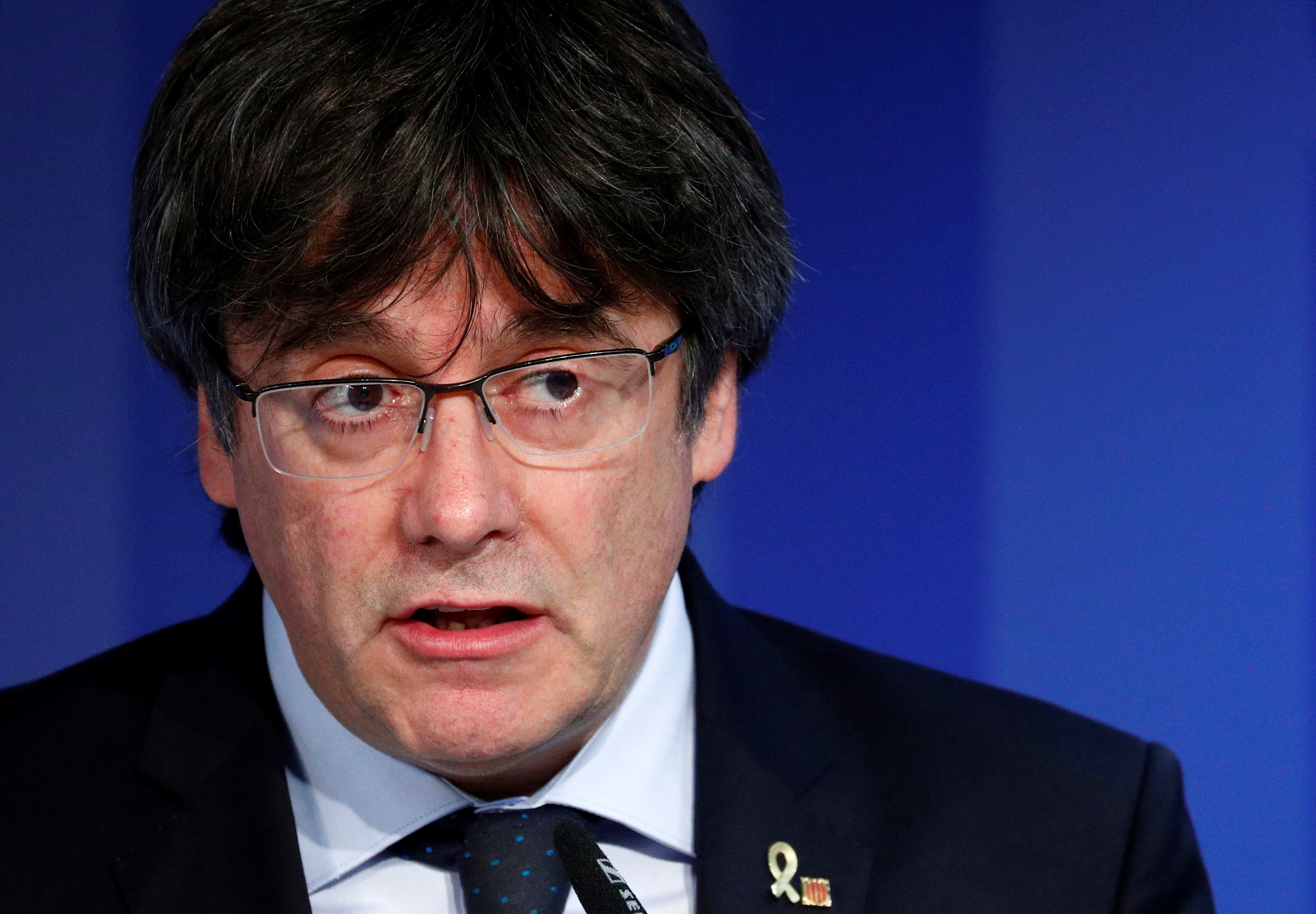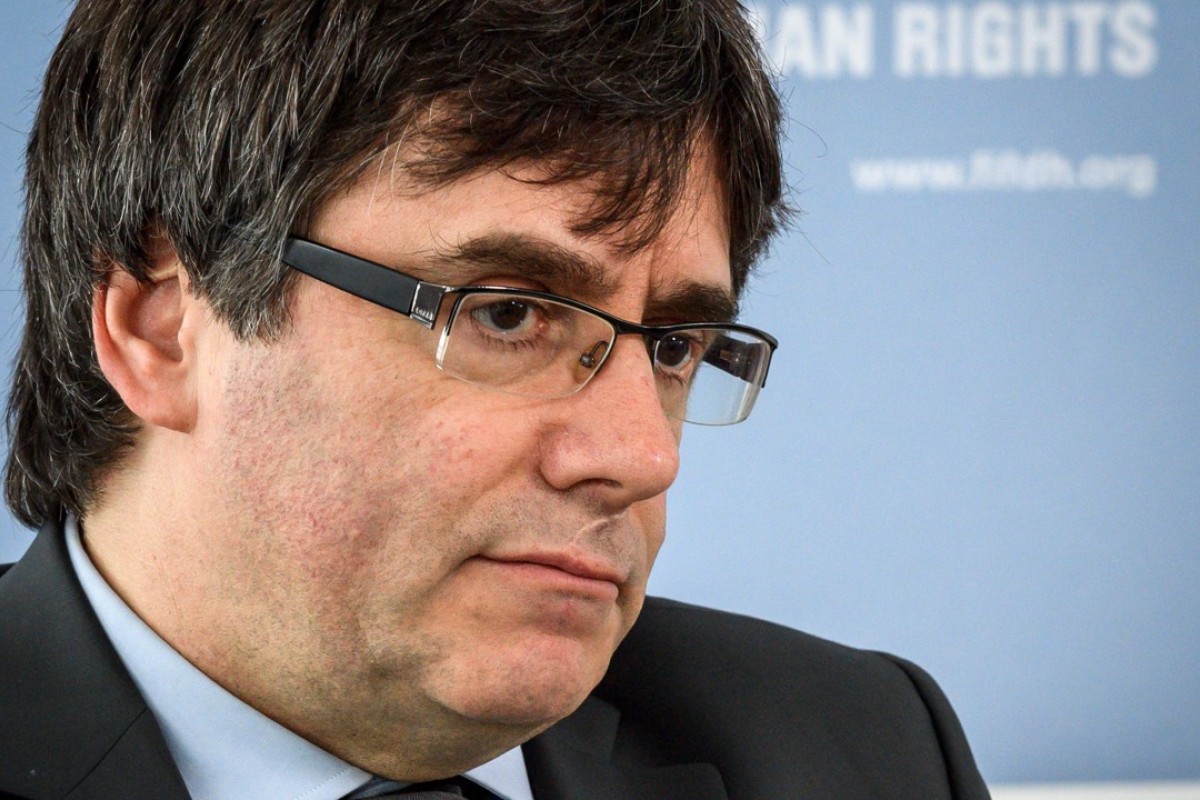Puigdemont’s Return: A Political Earthquake

Carles Puigdemont’s return to Spain after nearly seven years in self-imposed exile has sent shockwaves through the political landscape, marking a pivotal moment in the ongoing Catalan independence saga. Puigdemont, the former president of Catalonia, fled to Belgium in 2017 following the failed declaration of independence and subsequent Spanish crackdown. His return, while unexpected, signals a renewed determination to push for Catalan independence.
Historical Context and Events Leading to Puigdemont’s Return
Puigdemont’s exile was a direct consequence of the controversial 2017 Catalan independence referendum, which was deemed illegal by the Spanish government. Following the referendum, the Catalan parliament declared independence, leading to the Spanish government’s imposition of direct rule over Catalonia and the issuance of arrest warrants for Puigdemont and other Catalan leaders. Puigdemont’s subsequent flight to Belgium triggered a period of political turmoil and heightened tensions between Catalonia and Spain.
In the years since his exile, Puigdemont has remained a prominent figure in Catalan politics, leading the pro-independence movement from afar. He has continued to advocate for Catalan independence, while navigating the legal and political challenges of his situation. His return to Spain marks a significant shift in his strategy, indicating a willingness to face the consequences of his actions and to re-engage with the political process in Spain.
Political Implications of Puigdemont’s Return for Catalonia and Spain
Puigdemont’s return has profound political implications for both Catalonia and Spain. For Catalonia, it represents a resurgence of the independence movement, with Puigdemont’s presence potentially reinvigorating the movement’s grassroots support and providing a unifying figure for the diverse factions within the independence movement.
For Spain, Puigdemont’s return presents a complex challenge. The Spanish government has been adamant in its opposition to Catalan independence, and Puigdemont’s presence could further escalate tensions and complicate efforts to resolve the Catalan issue. The return of a figure who has been accused of rebellion and sedition could also spark public protests and unrest in Spain.
Potential Impact of Puigdemont’s Return on the Ongoing Political Situation in Catalonia, Carles puigdemont ex catalan leader returns to spain after nearly 7 years as a fugitive
Puigdemont’s return is likely to have a significant impact on the ongoing political situation in Catalonia. His presence could revitalize the pro-independence movement, potentially leading to renewed calls for a referendum on independence. It could also trigger a period of political instability, as the Catalan government navigates the complex legal and political landscape surrounding Puigdemont’s return.
Reactions of Various Political Figures and Parties to Puigdemont’s Return
Puigdemont’s return has been met with mixed reactions from various political figures and parties. Pro-independence parties have hailed his return as a victory for the Catalan cause, while Spanish political leaders have expressed concerns about the potential for unrest and instability.
“Puigdemont’s return is a testament to the strength of the Catalan independence movement.”
– Jordi Turull, former Catalan government spokesperson and prominent member of the pro-independence party Junts per Catalunya.
“Puigdemont’s return is a reckless and irresponsible act that will only further destabilize the political situation in Catalonia.”
– Inés Arrimadas, leader of the Ciudadanos party, a center-right party that opposes Catalan independence.
“The Spanish government must act decisively to ensure that Puigdemont faces justice for his actions.”
– Pablo Casado, leader of the Partido Popular, Spain’s conservative party.
Legal and Judicial Implications: Carles Puigdemont Ex Catalan Leader Returns To Spain After Nearly 7 Years As A Fugitive

Carles Puigdemont’s return to Spain after nearly seven years in self-imposed exile marks a significant moment in the ongoing Catalan independence saga. His decision to face legal proceedings in Spain raises numerous legal and judicial questions, with potential ramifications for both Puigdemont himself and the Catalan independence movement.
Puigdemont’s Legal Status in Spain
Puigdemont’s legal status in Spain is complex and multifaceted. He faces multiple charges related to his role in the 2017 Catalan independence referendum and subsequent declaration of independence. These charges include rebellion, sedition, and misuse of public funds. While in exile, Puigdemont was subject to a European Arrest Warrant (EAW) issued by Spain, which was ultimately revoked by the Belgian authorities. Upon his return, he is expected to face immediate legal proceedings.
Legal Arguments and Challenges
Puigdemont’s legal team will likely argue that the charges against him are politically motivated and that the 2017 events should be considered a political act rather than a criminal offense. They may also challenge the legality of the EAW and argue that his time in exile was a form of political asylum. The Spanish legal system will need to carefully consider these arguments and determine whether Puigdemont’s actions constitute criminal offenses under Spanish law.
Potential Consequences for Puigdemont and the Catalan Independence Movement
The outcome of Puigdemont’s legal proceedings could have significant consequences for both him and the Catalan independence movement. If found guilty, Puigdemont could face a lengthy prison sentence. This would likely further alienate the Catalan independence movement and create tensions with the Spanish government. Conversely, if acquitted or if the charges are dropped, it could be seen as a victory for the independence movement and potentially embolden supporters.
Comparison with Other Countries
The legal situation in Spain can be compared to other countries that have dealt with similar cases of political asylum. In the United Kingdom, for example, the case of Julian Assange, who sought asylum in the Ecuadorian embassy in London, highlighted the complex legal and political considerations involved in granting asylum to individuals facing extradition. The Assange case, while distinct from Puigdemont’s, provides a framework for understanding the potential legal and political challenges that Spain faces in dealing with Puigdemont’s return.
The Future of Catalonia and Spain

Carles Puigdemont’s return to Spain after nearly seven years in self-imposed exile marks a pivotal moment in the complex relationship between Catalonia and Spain. The potential consequences of this move are far-reaching, with implications for the future of both regions.
Timeline of Potential Scenarios and Consequences
Puigdemont’s return could trigger a range of scenarios, each with its own set of consequences. Here is a possible timeline outlining these scenarios:
- Short-term: Puigdemont’s immediate legal situation will be a key focus. He could face arrest and potential prosecution for his role in the 2017 independence referendum and declaration of independence. The reaction of Catalan society, particularly the pro-independence movement, will be crucial. A peaceful and measured response could create space for dialogue, while a surge in protests could escalate tensions and further polarize the situation.
- Mid-term: If Puigdemont avoids immediate arrest, he could attempt to re-engage in Catalan politics. This could involve seeking a new mandate through elections or working with existing political parties to push for greater autonomy or a renewed push for independence. The Spanish government’s response will be crucial, as it could determine the direction of the conflict. A conciliatory approach could lead to negotiations and potential concessions, while a hardline stance could further entrench the independence movement.
- Long-term: The long-term implications will depend on the success or failure of the Catalan independence movement. If the movement gains momentum and achieves its goals, Spain could face a significant territorial loss and a potential constitutional crisis. Conversely, if the movement loses steam or is effectively suppressed, Catalonia could remain within Spain but with a renewed focus on regional autonomy and self-governance.
Key Players and Potential Responses
The Catalan independence movement is a complex and multifaceted entity, with a diverse range of actors and potential responses. Here is a table outlining the key players and their potential reactions to Puigdemont’s return:
| Player | Potential Response |
|---|---|
| Carles Puigdemont | Attempt to re-energize the independence movement, potentially seeking a new mandate through elections or working with existing political parties. He may also focus on international pressure to push for a negotiated solution. |
| Junts per Catalunya (JxCat) | Likely to rally behind Puigdemont, potentially pushing for a new independence referendum or seeking a more autonomous status within Spain. |
| Esquerra Republicana de Catalunya (ERC) | May adopt a more pragmatic approach, potentially seeking a negotiated solution with the Spanish government, while still supporting the goal of independence. |
| Spanish Government | Could adopt a hardline stance, seeking to prosecute Puigdemont and suppress the independence movement. Alternatively, they might pursue a more conciliatory approach, seeking to address Catalan grievances and potentially offering greater autonomy. |
| European Union | May play a mediating role, encouraging dialogue and seeking a peaceful resolution to the conflict. However, the EU’s influence is limited, and it is unlikely to take a strong stance on the issue. |
Possible Paths for the Catalan Independence Movement
Puigdemont’s return could lead to a variety of paths for the Catalan independence movement. Here is a flowchart illustrating these potential trajectories:
- Path 1: Peaceful Negotiation and Concessions: Puigdemont’s return could lead to a period of dialogue and negotiation between the Catalan and Spanish governments. If both sides are willing to compromise, a negotiated solution could be reached, granting Catalonia greater autonomy or even a form of federalism within Spain. This path would likely require concessions from both sides and could involve a referendum on a new constitutional arrangement.
- Path 2: Renewed Independence Push: Puigdemont’s return could re-energize the independence movement, leading to a renewed push for secession. This path could involve a new referendum, mass protests, or even civil disobedience. However, it would likely face strong opposition from the Spanish government and could lead to further political and social instability.
- Path 3: Stalemate and Polarization: Puigdemont’s return could lead to a stalemate, with both sides digging in their heels and refusing to compromise. This scenario could further polarize Catalan society and exacerbate tensions between Catalonia and Spain. It could also lead to a period of political instability and uncertainty, potentially undermining economic growth and social cohesion.
Impact on the Relationship Between Catalonia and Spain
Puigdemont’s return will undoubtedly have a significant impact on the future of the relationship between Catalonia and Spain. The potential outcomes range from a negotiated solution that strengthens the bond between the two regions to a further escalation of the conflict, potentially leading to a break-up of Spain.
The outcome will depend on the choices made by the key players involved, including Puigdemont, the Catalan and Spanish governments, and the international community.
Carles puigdemont ex catalan leader returns to spain after nearly 7 years as a fugitive – Carles Puigdemont, the former Catalan leader who fled Spain in 2017 to avoid arrest for his role in the region’s independence bid, has returned to the country after nearly seven years. His return comes at a time when a high-profile case of alleged misconduct is unfolding in the world of Formula One, as Red Bull denies an appeal by an employee who accused F1 boss Christian Horner of misconduct.
Puigdemont’s return to Spain has sparked a wave of political controversy, raising questions about the future of Catalonia’s independence movement.
Carles Puigdemont, the former Catalan leader who fled Spain in 2017 after a failed independence bid, has finally returned to the country after nearly seven years as a fugitive. His return, which comes just days after Spain’s Constitutional Court lifted a warrant for his arrest, is sure to reignite tensions between the central government and the region.
Puigdemont’s supporters see his return as a victory, while his opponents fear it could lead to renewed instability. While the political landscape in Spain is set to become even more complex, perhaps a comfortable light brown accent chair would provide a much-needed moment of calm for those navigating the turbulent waters of Catalan politics.
